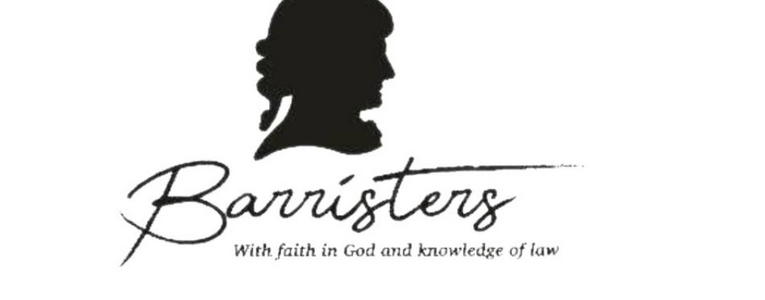
Buying a train ticket is not just a transaction – it is the conclusion of a public contract, so “Ukrzaliznytsia” (UZ) is obliged to provide services to everyone who applies to it.
According to Kirill Iordanov, a senior attorney at Barristers JSC, it is only the law, not UZ’s internal documents, that can restrict the right to travel because of the impossibility of buying a ticket through Dia.
“Buying a train ticket is not just a transaction. It is the conclusion of a public contract. In simple language: it’s like coming to the store for bread. The store cannot refuse to sell you if you have the money. In the same way, “Ukrzaliznytsia” as a carrier, occupying a monopoly position in the country, is obliged to provide services to everyone who applies to it. This is directly spelled out in Article 633 of the Civil Code of Ukraine,” he told Interfax-Ukraine.
Iordanov noted that by setting “Dia” as the only key to access the service, the carrier arbitrarily changes the conditions of its provision, it does not just offer a convenient digital service, but forces its use, creating an artificial barrier.
“It turns out to be a paradox: your passport, the main identity document, suddenly becomes less important than having an app on your phone. This is not just an inconvenience – it is a direct violation of the principle of equality. The Constitution of Ukraine guarantees everyone the right to freedom of movement. Of course, this right can be restricted, but only by law, not by an internal decision of a joint-stock company (UZ – IF-U), even if it is state-owned,” he said.
Iordanov believes that the innovation of “Ukrzaliznytsia” to sell tickets only through authorization in “Diya” in practice is a restriction of freedom of movement.
“Ukrzaliznytsia’s initiative hurts the so-called ‘digital divide’, putting huge groups of people in an unequal position. All these people are not speculators. They are ordinary passengers, who are actually deprived of access to a basic service by the state represented by Ukrzaliznytsia,” says the lawyer.
Iordanov also drew attention to the risks of vulnerability of “a non-alternative system tied to the complex interaction of several platforms (UZ, Diya, BankID, mobile operators).”
“Critical dependence on a single infrastructure creates huge risks: in case of a powerful DDOS attack on Diya’s servers or a technical failure in Ukrzaliznytsia’s system, ticket sales for key destinations will be completely paralyzed. Without an alternative in the form of ticket offices, thousands of people will be trapped at a critical moment, making the system potentially dangerous. Adding to this system vulnerability is the human factor, as Diya is inextricably linked to the smartphone. If the phone is lost, broken or simply discharged, a person loses the only key to access the service, turning an ordinary life nuisance into a serious problem,” he stated.
In addition, Iordanov noted that the initiative creates invisible barriers to the outside world, as foreign tourists or Ukrainians permanently residing abroad cannot use the system.
At the same time, he drew attention to the “legal vacuum of responsibility” in case a passenger suffered financial losses due to a failure in the system.
“The current legislation does not provide a clear answer, leaving the consumer alone with his problem, with no real levers to compensate for losses. This set of technical and operational risks demonstrates that the hasty introduction of alternative-free digital solutions can create a collapse where before it was just an inconvenience,” he said.
At the same time, Iordanov emphasized that the judicial prospects of lawsuits by passengers who will not be able to buy a ticket because of the innovations are very high.
“The arguments for the court are ironclad: violation of consumer rights, coercion to conclude a contract on discriminatory terms and violation of constitutional rights. The court is likely to side with the person and oblige the carrier to remove the obstacles,” he said.
In addition, according to Iordanov, there may be a harsh reaction of the AMCU to UZ’s actions – from mandatory recommendations to change the rules to a multimillion-dollar fine.
“Ukrzaliznytsia is a monopolist. And abuse of monopoly position is a direct competence of the AMCU. Creating conditions under which one group of consumers (with “Dia”) gets access to the service, and the other (without ‘Dia’) – not, is a classic example of such abuse”, – he emphasized.
“When introducing any innovation in the social sphere, it is important to keep in mind the key principle – inclusiveness and availability of choice. “Diya.Pidpys” can be a great verification tool, a convenient and modern option for many passengers. However, preserving the possibility to buy a ticket in the traditional way, for example, at the ticket office by passport, will avoid creating barriers for different groups of citizens,” the lawyer summarized.
As reported, due to the shortage of tickets for trains UZ since July 25 spread in test mode verification through “Diya.Pidpys”, which works for international flights and five popular domestic trains. However, the move was heavily criticized by some passengers. In response, the company refused to verify through “Dia.Pidpys” when buying tickets for two domestic trains – #105/106 Odessa – Kiev and #91/92 Lviv – Kiev and test left it for three trains: #29/30 Kiev – Uzhgorod, #12 Lviv – Odessa and #27/28 Kiev – Chop.